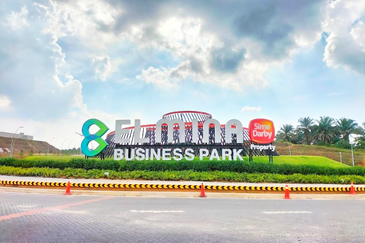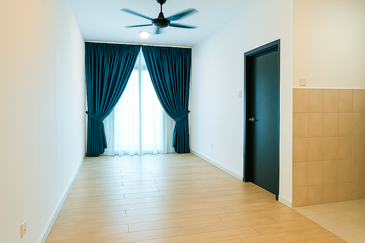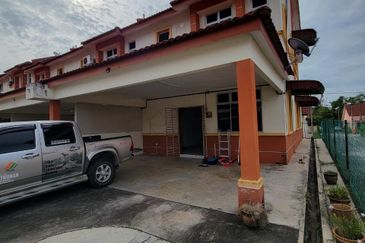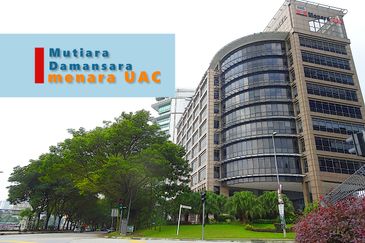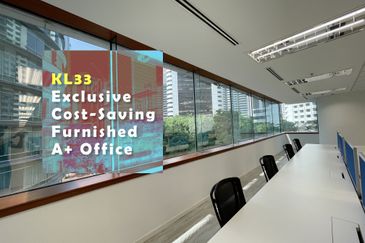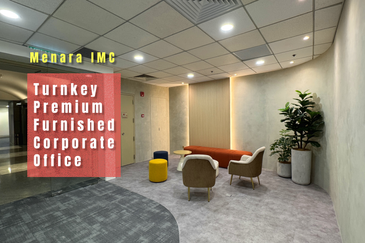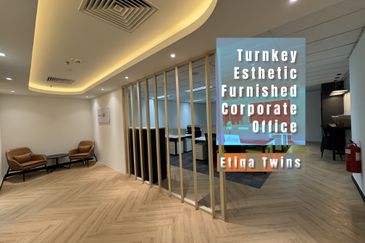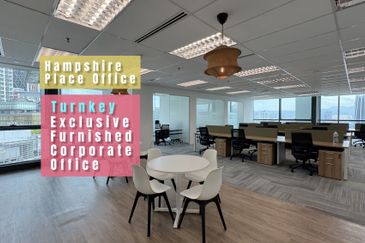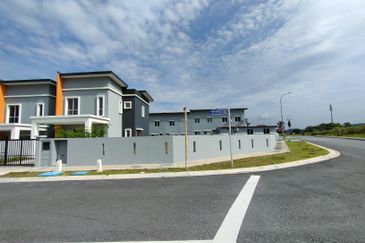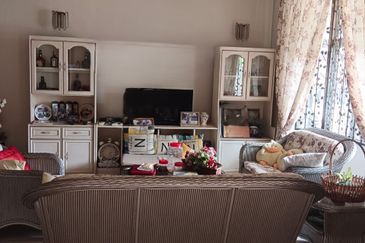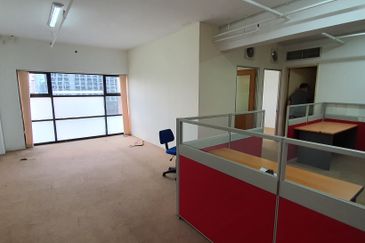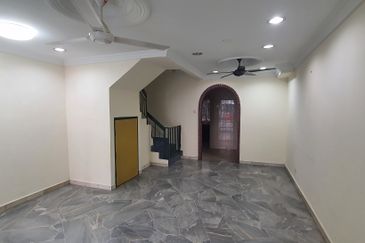
THE UK election result on June 8 makes investing in UK assets tough, says Mark Schofield, managing director of global strategy and macro group at Citi. With little certainty as to who will be in power over the course of the Brexit process, let alone what the policy mix is going to look like, it is hard to price assets other than by raising risk premia in the form of implied volatility, he adds in a June 12 report.
The continued weakness of the British pound against the US dollar and the euro, however, may encourage more investors to take advantage of discounted prices in the property and stock markets, reckons Naomi Heaton, CEO of London Central Portfolio, an investment firm that specialises in central London residential property. Nevertheless, the transaction volume in Prime Central London is expected to slow as investors take stock of the situation, particularly at the luxury end and in the new-build sector, segments that have already been battered by the introduction of new residential taxes, she adds.
Record office deals in 1Q2017
UK commercial real estate, on the other hand, is on fairly steady footing, says M&G Real Estate’s head of property research, Richard Gwilliam. “With the economy continuing to grow, investors should be comforted by real estate’s rental fundamentals, which benefit from ongoing — albeit softer — occupational demand, and, for most markets, a lack of significant supply of space.”
Indeed, 1Q2017 was a record quarter for the London office investment market, with £4.9 billion (RM26.8 billion) worth of transactions, according to global real estate adviser CBRE. It was the highest quarterly sales to date since 4Q2014. The strong 1Q2017 performance even surpassed that of 4Q2016, when £4.1 billion worth of commercial real estate was sold, which is a testament to the resilience of the London office investment market following the EU referendum on June 23, 2016, notes CBRE.
A total of 13 deals of at least £100 million each were transacted in 1Q2017, compared with 11 in 4Q2016. Overseas investors once again dominated the market, accounting for nine, or 80%, of the 13 transactions, compared with 74% in 4Q2016, according to CBRE.
The £4.9 billion sales in 1Q2017 included that of the Leadenhall Building at 122 Leadenhall Street. Also known as the “Cheesegrater”, it is considered the tallest tower in the City of London at 225m and spanning 46 floors. The buyer, Hongkong-listed CC Land, is controlled by Chinese tycoon Cheung Chung-kiu, nicknamed “Chongqing’s Li Ka-shing”. Li, considered the wealthiest man in Hong Kong, has made significant investments in the UK.
CC Land’s purchase of the Cheesegrater for £1.15 billion represents one of the largest investment transactions in UK history. It is only the third office building transaction in which the price has crossed £1 billion, says Christopher J Brett, CBRE executive director and head of international capital markets, UK.

The other two transactions above £1 billion were for HSBC’s headquarters, HSBC Tower at Canary Wharf. It was first sold in 2006 to Spanish property group Metrovacesa for £1.09 billion, and again in October 2014, to Qatar Investment Authority for £1.1 billion.
Asian investors accounted for half the deals
Boosted by the Leadenhall Building deal, Asian investors represented 50% of the overall investment transactions, says Christopher Pilgrim, CBRE director of Central London international capital markets. European investors were the second biggest group with a 23% share.

The start of the year saw German fund manager Deka Immobilien buying Cannon Place for £510 million. The 418,000 sq ft building was said to have a net yield of 4.25%. CBRE and Savills were said to have represented Deka in the deal.
In January this year, CBRE was involved in the sale of 8 St James’s Square to Hong Kong-listed Shun Tak Group for £213 million, or £3,425 psf, making it the most expensive property sold in the West End so far, says CBRE’s Pilgrim.
“The Asian investors were mainly from China and Hong Kong, with Hong Kong-based players dominating,” he adds. “The Hong Kong buyers are more aggressive on pricing, and London yields still look relatively attractive.”
After moving out by 25 basis points to 4.25% in 2Q2016 (due to uncertainty ahead of the Brexit referendum on June 23, 2016), prime London City office yields reverted to their pre-referendum level of 4% as a result of strong investor demand while prime West End yields remained at 3.75% in 1Q2017, says CBRE.
Global appetite for Central London office property has not diminished, observes CBRE’s Brett. In 1H2016 pre-referendum, demand for Central London office property stood at £33 billion. Today, that demand has increased to £38.5 billion, he says.
What’s on the market?
On the market is a 50% stake in the Walkie-Talkie building at 20 Frenchurch Street, in the City of London. The vendor is Canary Wharf Group, and the price tag for the 50% stake is said to be £600 million. The property is being marketed by CBRE.

Meanwhile, private equity group Blackstone is selling St Katharine’s Dock, a part-office, part-marina complex near Lonon’s Tower Bridge. The price tag is believed to be £435 million. CBRE is said to be one of the marketing agents of the property.

Since Brexit, some foreign investor interest has shifted to Europe, particularly Germany and France. “However, both these markets still have strong local demand and do not have the liquidity that London has,” notes Brett. “London also has the advantage in terms of language, legal system and time zone. Fundamentals are still a key point for investors.”
This article first appeared in The Edge Property Singapore, a pullout of The Edge Singapore, on June 19, 2017.
For more stories, download TheEdgeProperty.com pullout here for free.
TOP PICKS BY EDGEPROP
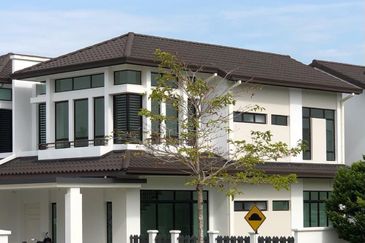
Tenderfields @ Eco Majestic
Semenyih, Selangor
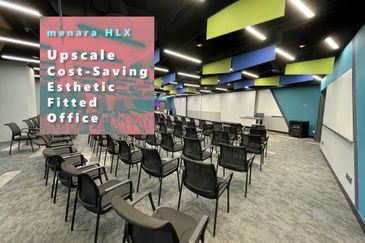
Menara HLX (formerly Menara HLA)
KL City Centre, Kuala Lumpur
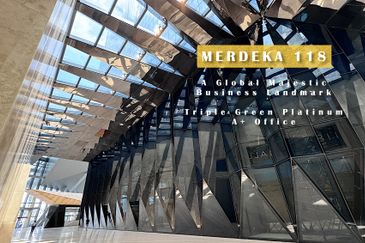
Merdeka 118 @ Warisan Merdeka 118
KLCC, Kuala Lumpur
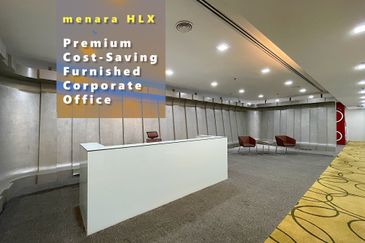
Menara HLX (formerly Menara HLA)
KL City Centre, Kuala Lumpur
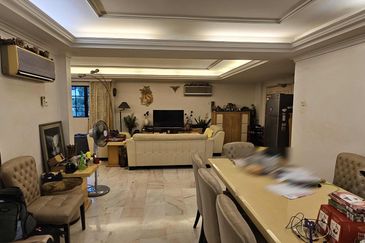
Belvedere
Kenny Hills (Bukit Tunku), Kuala Lumpur


